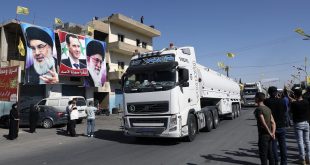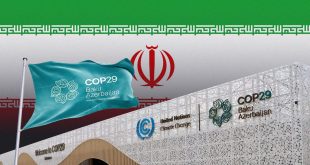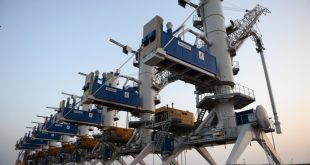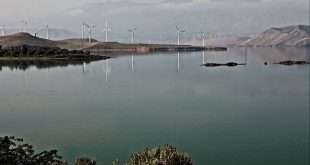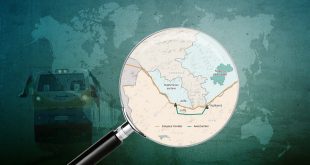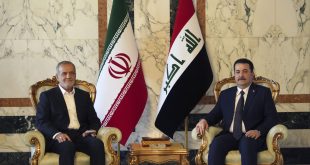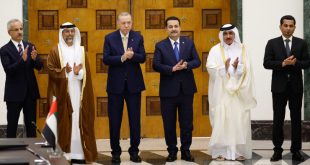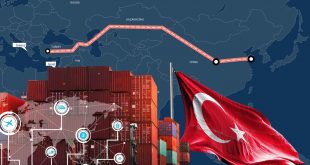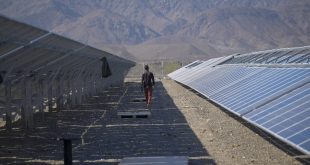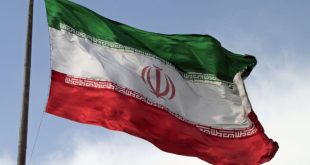The fall of Assad marks a pivotal blow to Iran’s regional strategy, reshaping its influence in the Middle East. Radical shifts in the regional balance of power have forced Iran to reconsider its long-held foreign policy of propping up anti-U.S. and anti-Israel forces—the so-called “Axis of Resistance,” a strong network of proxy …
Read More »COP29 and Iran: Overcoming Sanctions, Fossil Fuel Dependence, and Harnessing China’s Role in the Clean Energy Transition
Iran is facing serious environmental challenges exacerbated by climate change, which threaten its long-term sustainability. Rising temperatures, acute water shortages, and increasing frequency of natural disasters such as droughts and floods are placing mounting pressure on the nation’s ecosystems and agriculture. Iran’s heavy reliance on gas and oil, combined with …
Read More »Persian Gulf-Black Sea corridor: A new era for Iran-Europe trade or just another risk?
In 2016, Iran proposed a regional initiative to develop the Persian Gulf-Black Sea International Transport and Transit Corridor (ITC), which would include Armenia, Azerbaijan, Georgia, Bulgaria, and Greece. This multi-modal corridor will begin in Iran at Bandar Abbas, head north through the country, and continue into Armenia or Azerbaijan, connecting four key …
Read More »Iran’s Renewable Energy Prospects and Challenges
Iran’s renewable energy sector now produces less than one percent of the nation’s total electricity, far less than its neighbors Amid the multiple crises roiling the Middle East, Iran’s new President Masoud Pezeshkian also faces important decisions about his country’s energy destiny. Characterized by excessive reliance on fossil fuels and frequent power …
Read More »Geopolitical Rivalries in the South Caucasus: Evaluating the Aras Corridor as an Alternative to Zangezur
Rival transit corridor projects have centered on the South Caucasus as it becomes more and more important in connecting Europe and Asia. These corridors serve as hubs for international trade integration, regional stability, and economic progress in addition to being routes for transit. The Zangezur Corridor is unique among these …
Read More »A New President Visits an Old Partner: Tehran Turns to Iraq
In his first trip abroad as president, Masoud Pezeshkian reaffirmed Iraq’s central role in Iran’s foreign policy. Masoud Pezeshkian’s inaugural trip to Iraq from September 11-13 marked a pivotal moment in the evolving relationship between the two neighbors. The new president’s visit underscores Iraq’s strategic importance to Iran and reflects Pezeshkian’s commitment …
Read More »Powering up: Turkey-Iraq transmission line is part of a broader strategic shift
On July 21, 2024, Baghdad inaugurated a new power line connecting Turkey and Iraq to handle Turkish electricity imports. This 115-kilometer (71-mile) transmission line is expected to deliver 300 megawatts of energy to a power station west of Mosul with the aim of supplying northern Iraq, including the regions of Nineveh, Salahuddin, and …
Read More »Charting a Course: Türkiye’s Ambitious Plan for Middle Corridor Trade Expansion
Dr. Umud Shokri,Dr. Serhat Suha Cubukcuoglu,Sultan AlRubaei Amidst rising tensions and disruptions to maritime trade along the Mediterranean-Indian Ocean route, another trade corridor that roughly coincides with the ancient Silk Road has once again heightened in importance: The Middle Corridor, also known as the Trans-Caspian International Transport Route (TITR), is …
Read More »Iran’s Renewable Energy Aspirations and Geopolitical Challenges
Iran has realized the value of its vast renewable energy potential—but serious international and institutional obstacles threaten to derail Tehran’s green energy plans before they gain momentum. Although Iran is one of the world’s largest producers of fossil fuels, the Islamic Republic has increasingly focused on renewable energy to address its growing …
Read More »Powering change: Iran’s electricity crisis and the path forward under Pezeshkian
Iran’s mismatch between energy supply and consumption has led to industrial power outages and blackouts for residential users, leading to increased poverty, economic losses and social unrest. The mismatch between energy production and consumption in Iran has made it difficult for the government to provide power to different users. As …
Read More »
